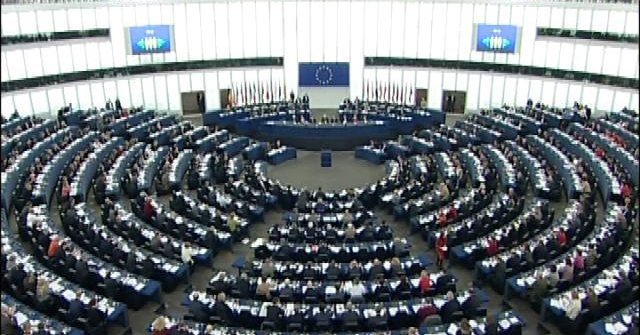The vote on the Duff Report was scheduled to take place Wednesday 14 March but EP group leaders have decided to put off the proposal after the EPP took the decision not to back the transnational lists. It is fair to say that not only are the largest political group in the EP against the proposal, but a good number of socialist members were also contra, leaving only some socialists, greens and liberals to vote in favour. It is likely that this means the end of the idea of transnational lists for the current political term.
The decision to put off the only consistent proposal currently on the table to Europeanise and personalise the EP elections and activate the European Political parties is as regrettable as it is worrying.
Traditionally the EP has been one of the most forward-looking and daring European institutions, putting forward innovative ideas such as the European Constitution as early as 1984. But it is a fact that during the last decades what the EP has gained in power as co-legislator, it has lost it in vision and drive.
The steady decline in participation in the EP elections since 1979 has been regretted by many, but except for some expensive and so far ineffective media campaigns little of any consequence has been done to repair it.
Many have argued that some of the causes of the diminishing interest in the EP election include the lack of a European component in what are effectively 27 national elections for the EP, the lack of a common message from inactive and unknown European political parties, a lack of connection between the results of the elections and the future of EU policies and a lack of accountability and visibility of the work of the EP.
Whereas there is consensus at European level that the current trend in participation to EP elections should be reversed, the truth is that the only serious attempt to do something is being discarded by the same institution whose future existence is linked to these elections. Of course, any reform of the European electoral law would require unanimity in the Council, which in principle is unlikely to occur but at least one would expect that the EP would stand up for its fate. It appears it won’t.
In times where Europeans are being forced to make the harshest sacrifices since the end of WWII – partly because of a badly designed European economic governance by so far unchallenged European leaders - when the EU is increasingly seen as an undemocratic body dictating restrictive economic measures to its otherwise democratically elected governments, when most European leaders are trying to convince their citizens that the solution of the current crisis is more Europe,. how can the EU justify putting off the only attempt to bring more legitimacy and improve supranational democracy in the EU?
The recent fiscal compact is yet another treaty entrenching European national economies. More than ever, the fate of the Europeans is one - to succeed or fail together. Yet the advances in economic integration are not being coupled to progress in democratic accountability.
The last institutional measures to tackle the crisis are taking place using the intergovernmentalist method which goes in the opposite direction of what would be a parliamentarian European democracy. At this point it is fair to ask whether the EU can be democratic without a supranational parliament.
The decision of the big European parties regarding transnational lists and the institutional reforms pushed by the member states into the last treaty – bypassing the EP - show the intention to build a European democracy based solely on the “high chamber” or a “chamber of states”. Drawing a parallelism, this is like Germany deciding to push aside the Bundestag and accepting to be run by the Bundesrat alone. If one observes the political systems currently in operation around the globe, it is not possible to find any example of a democratic country in the world that is being organised this way.
In view of these developments it is legitimate to ask to big parties such as the EPP or the PSE, who have been instrumental in the build-up of the European project so far, what their is plan for improving democracy on the European level.
European citizens have the right to know if the main European political parties believe that the current democratic structures suffice to give the EU the legitimacy and accountability it badly needs to justify the delegation of national sovereignty to the European level and the current hardships coming from Brussels. It is a fact that EU citizens have no power to influence the election of European leaders or to choose between economic models for Europe. This is the consequence but also the reason why Europe lacks the European government that should have guided the union through the crisis, instead of the contested Merkozy directoire.
In two years from now, we will celebrate the eighth EP elections. If nothing major changes then the economic crisis will still be ravaging Europe and the credibility of the EU could be at the lowest levels ever; with nationalism and populism on the rise and growing accusations against unaccountable and illegitimate EU institutions. If in this situation election turn-out continues to decline, what is the future for European democracy?


Follow the comments: |
|
